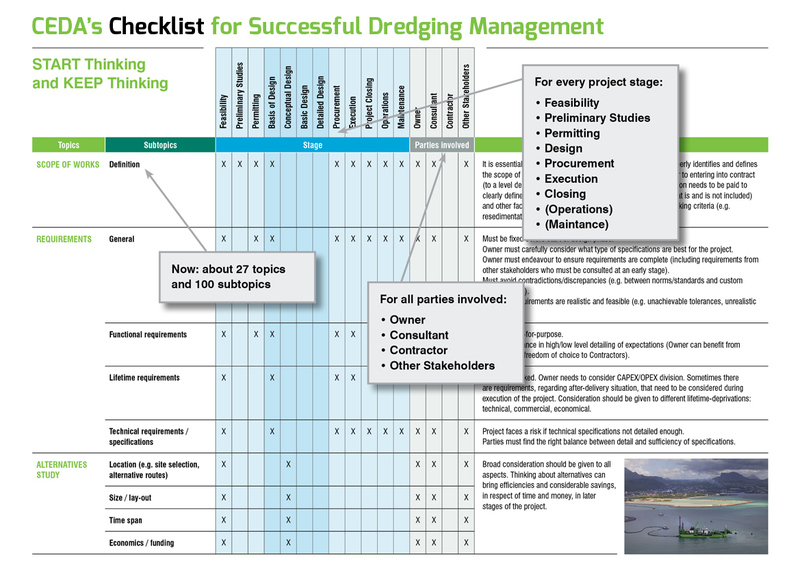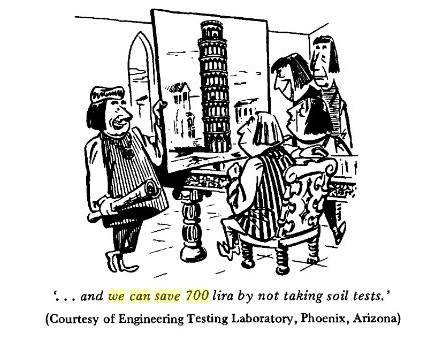CEDA DMC reviews its imminent information paper on soil investigation
CEDA Dredging Management Commission (DMC) recently met up, under the new rules imposed by COVID-19, to review their latest draft information paper on soil investigation. Although Commission members missed the personal contact and interaction, of a face-to-face meeting, they had a particularly fruitful virtual meeting.
In 2017, DMC published CEDA’s Checklist for Successful Dredging Management (full paper: free of charge for CEDA members; example pages). It comprehensively discusses the items to be considered, at various stages, by parties to dredging projects (such as owners, contractors, consultants and other stakeholders). CEDA’s diverse membership, with their various backgrounds, perspectives and wide-ranging expertise, generously shared their knowledge gained on numerous dredging projects over decades. Their contributions have led to a unique collection of real-world issues that often create problems, if not addressed, and has enormous practical value for all project parties, potentially saving lots of time and money. The Checklist is divided into 27 key topics, split into 100 sub topics, however it is not exhaustive. It is an organic document which will be updated with new topics and sub-topics as they arise, and DMC working groups will expand on selected topics.
 An example page from the checklist
An example page from the checklist
Soil investigation is one of the most influential factors, on dredging and maritime projects, leading to cost increases, time overruns, claims and ultimately disputes, between the owner and contractor. As such, it was highlighted as a topic worthy of elaboration and is the subject of the forthcoming information paper.  From: Craig & Jones (1984): A Geological Miscellany. Princeton University Press, Princeton, New Jersey
From: Craig & Jones (1984): A Geological Miscellany. Princeton University Press, Princeton, New Jersey
Soil investigation is covered in the Checklist as part of the preliminary studies, such as bathymetric surveys or UXO detection surveys, which should be performed at an early project stage. The output of these studies are used to inform all involved parties about local physical site conditions. They help define the design rules, and employer’s requirements, to apply in a project.
Excellent literature already exists on how to perform a proper soil investigation and the DMC has no intention of repeating it. Instead, the information paper will focus on common issues and points of contention, that often appear between the different contracting and invested parties to a project, and it will discuss how the related disputes can be avoided as much as possible.
To inform the paper, a series of interviews was conducted amongst CEDA member companies representing the three main entities involved with specifying and utilising soil investigations – owner, consultant and contractor. The following four issues were identified as the most contentious:
- insufficient intensity of soil investigation;
- poor quality soil investigation;
- non-relevant soil investigation; and
- unrealistic timing.
The information paper on soil investigation will discuss these key issues in detail and make recommendations. DMC are planning to publish the final paper during the summer.